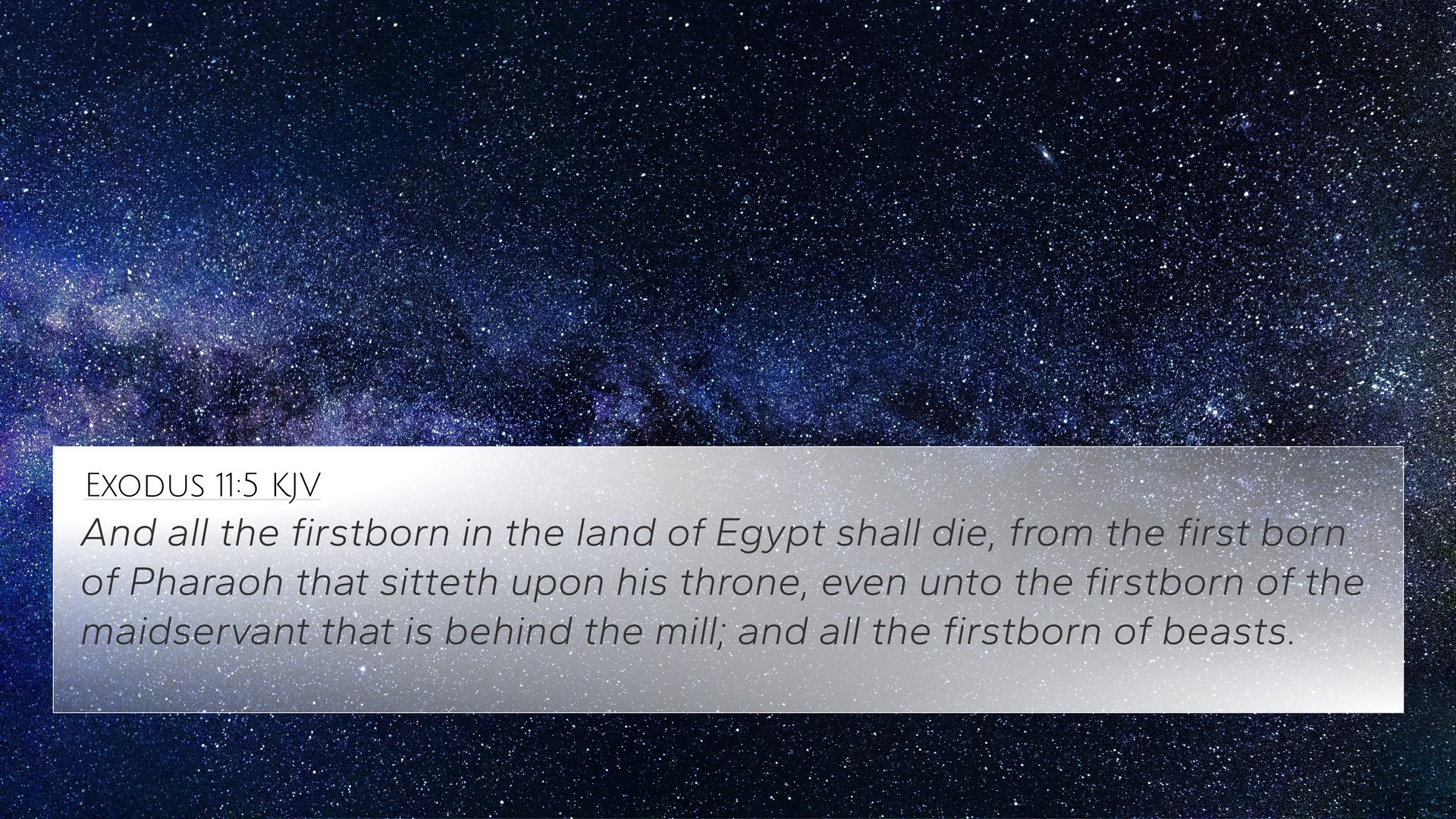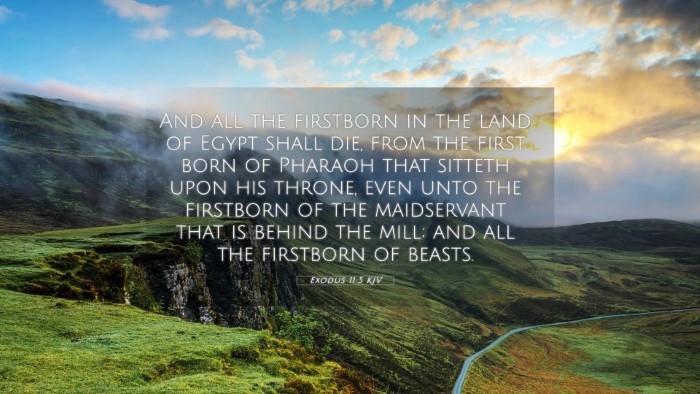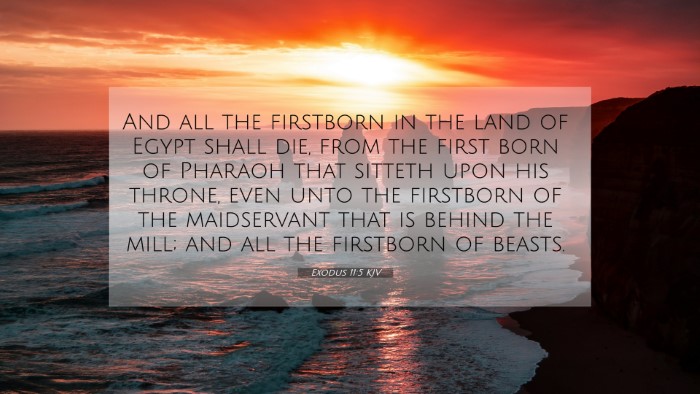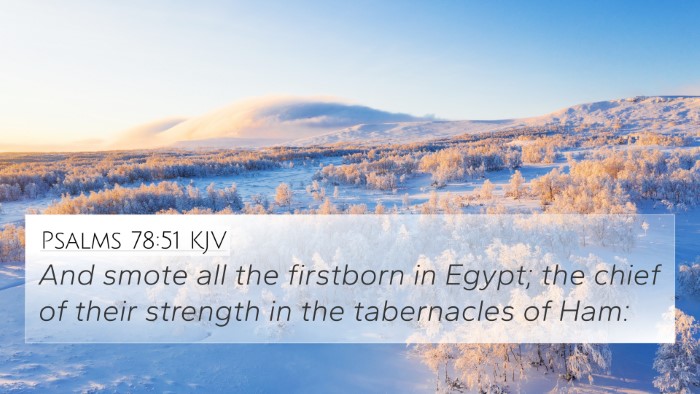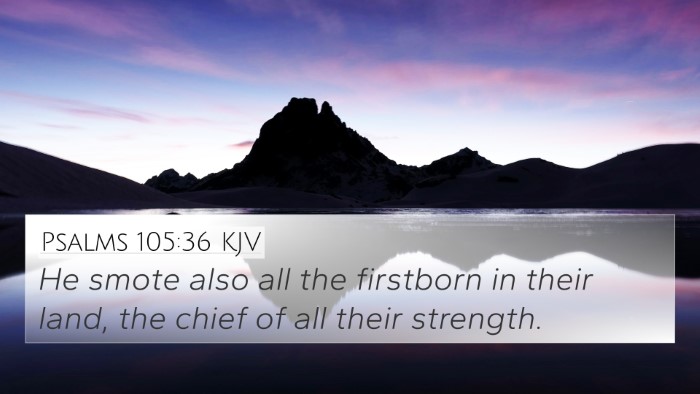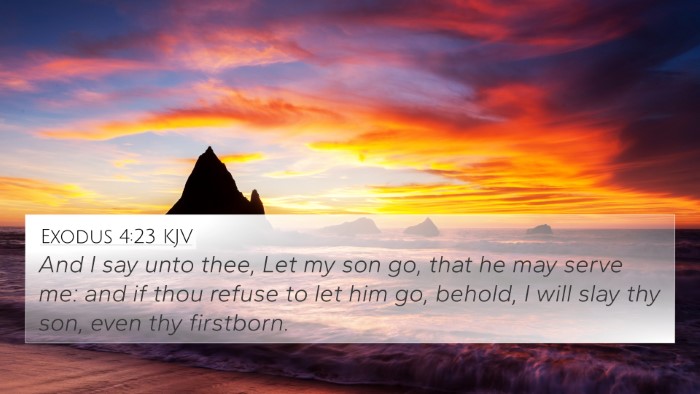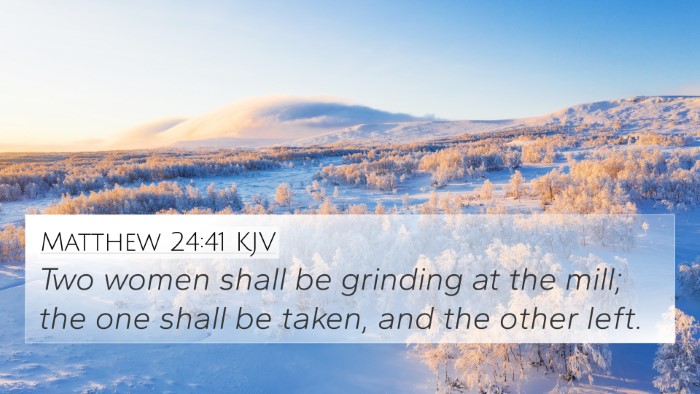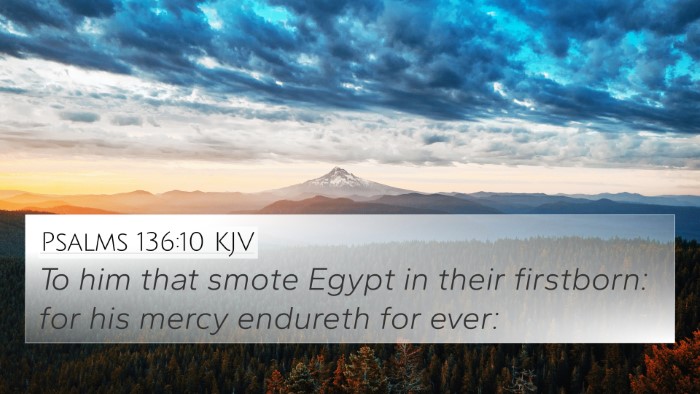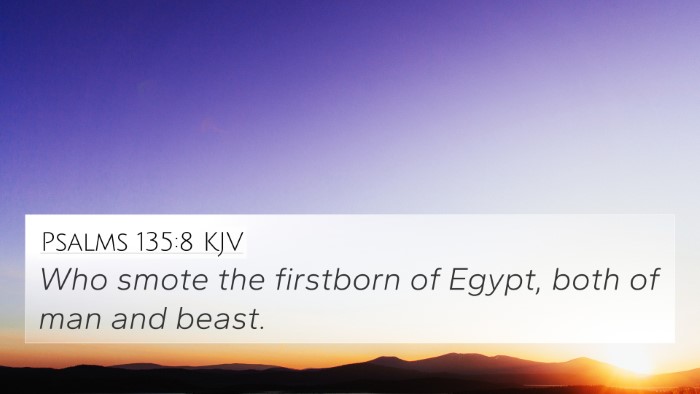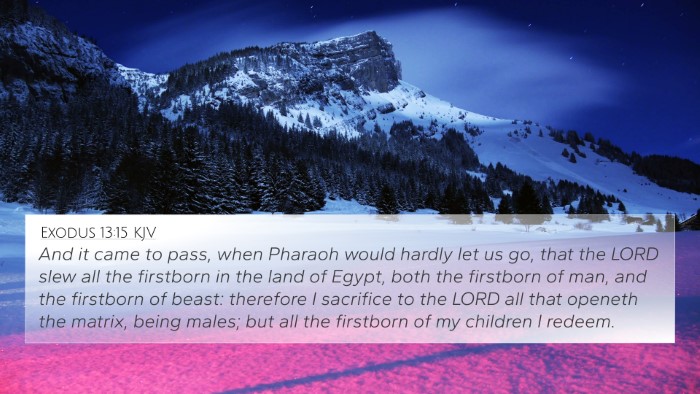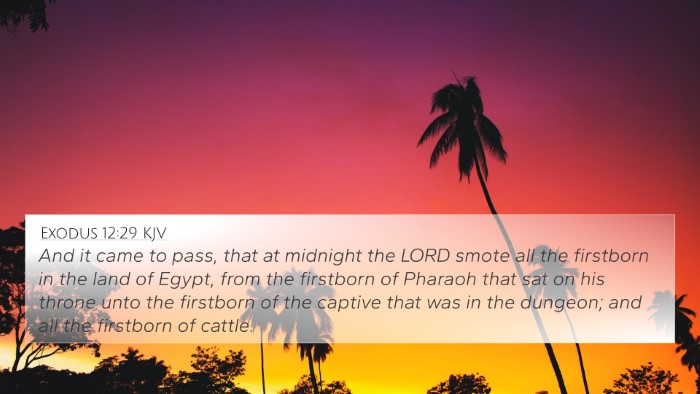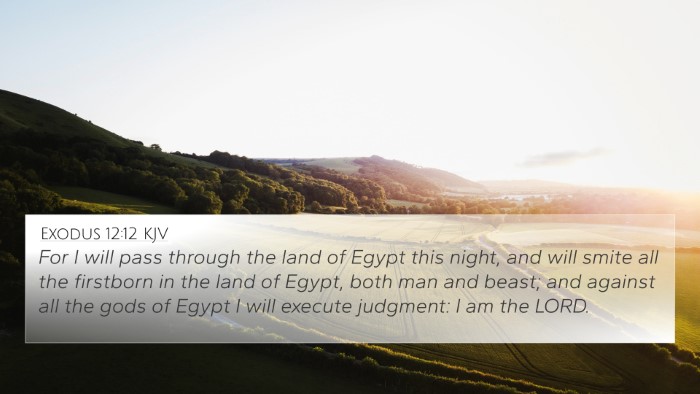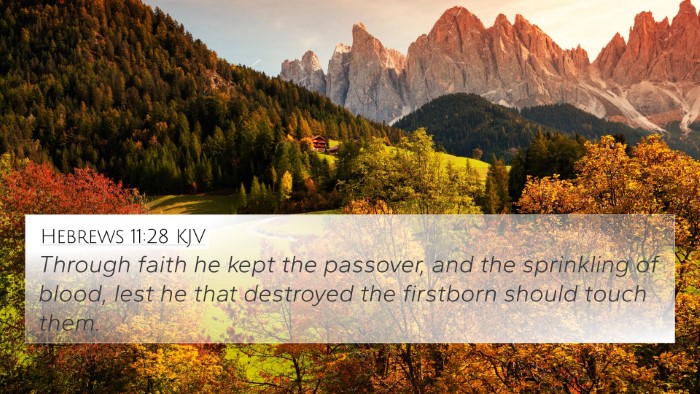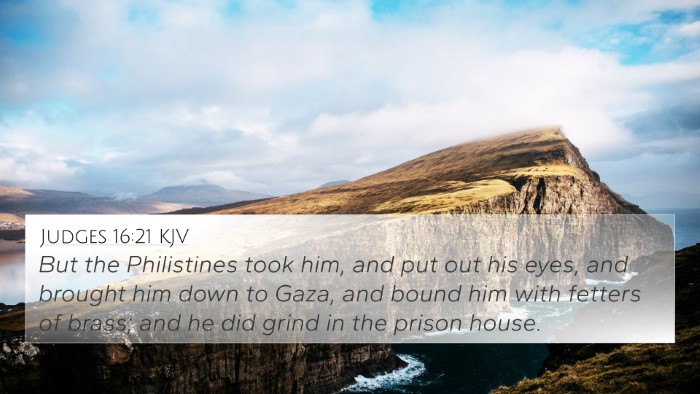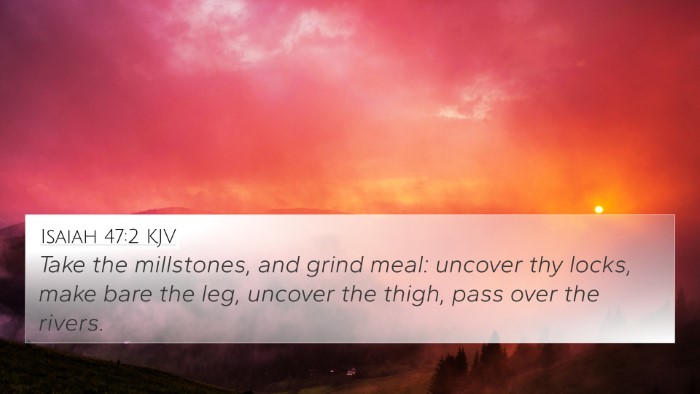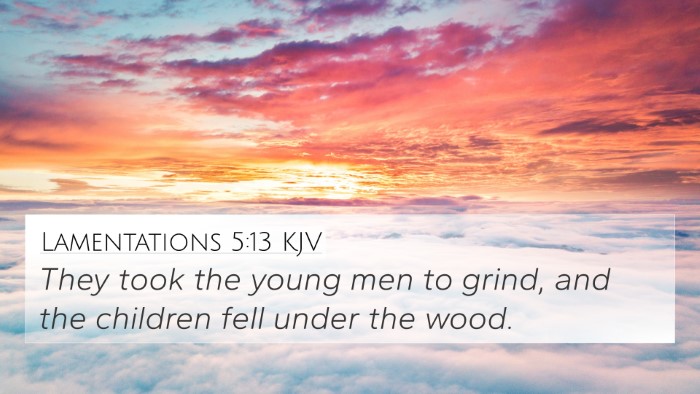Understanding Exodus 11:5
Exodus 11:5 states, “And all the firstborn in the land of Egypt shall die, from the firstborn of Pharaoh that sits upon his throne, even unto the firstborn of the maidservant that is behind the mill; and all the firstborn of beasts.” This verse is a dire proclamation concerning the final plague that God would unleash upon Egypt, emphasizing the severity of His judgment against Pharaoh’s hardened heart and the oppression of His people.
Summarized Interpretations from Public Domain Commentaries
Matthew Henry’s Commentary
Matthew Henry notes that this verse highlights God’s ultimate authority over life and death. The death of the firstborn serves as a divine judgment and a powerful sign of the seriousness of Pharaoh’s defiance. It illustrates God's justice, as the firstborn represented the strength and continuation of a family lineage, and their death would strike fear and loss into the hearts of the Egyptians.
Albert Barnes’ Notes
Albert Barnes emphasizes the universality of this judgment — affecting both the highest (Pharaoh) and the lowest (the maidservant) in society. This inclusivity illustrates that no one is above God’s judgment. Furthermore, this event is a prelude to the liberation of the Israelite people, as it compels Pharaoh to release them from slavery.
Adam Clarke’s Commentary
Adam Clarke points out the significance of the phrase “firstborn,” which holds both literal and symbolic importance. The firstborn represented the best and the promise of future generations. Clarke also connects this event to the concept of sacrifice, where the death of the firstborn foreshadows the ultimate sacrifice of Christ, the only Son of God.
Cross References and Thematic Connections
Exodus 11:5 connects with several noteworthy Biblical themes and verses:
- Exodus 12:29-30 - Describes the fulfillment of this prophecy when the firstborns of Egypt die.
- Romans 9:17 - Connects God’s purpose with Pharaoh’s heart being hardened to demonstrate His power.
- Hebrews 11:28 - Discusses the importance of the Passover and the significance of faith in God’s salvation.
- Psalm 78:51 - Recalls God's judgment against the firstborn of Egypt as a part of Israel’s history.
- Psalm 105:36 - Further recounts the plague on the firstborn as part of God’s wrath against Egypt.
- 1 Corinthians 5:7 - Refers to Christ as our Passover, indirectly connecting to the theme of sacrifice.
- Matthew 2:16 - Relates to the murder of infants by Herod as a parallel to Pharaoh’s decree.
Thematic Bible Verse Connections
This verse illustrates profound Biblical themes such as judgment, deliverance, sacrifice, and redemption, which are woven throughout Scripture.
For those interested in exploring cross-referencing Biblical texts, Exodus 11:5 can serve as a vital link between the Old Testament and the New Testament, showcasing the enduring principles of God’s justice and mercy.
Using Cross-References for Bible Study
To delve deeper into the themes surrounding Exodus 11:5, tools for Bible cross-referencing can be essential. Consider utilizing a Bible concordance or a Bible cross-reference guide to identify related verses and explore connections:
- Understand how to find cross-references in the Bible.
- Identify connections between Old and New Testaments.
- Explore a detailed cross-reference between Gospels.
- Engage in thematic cross-referencing for deeper insights.
Conclusion
Ultimately, Exodus 11:5 provides a stern reminder of God’s sovereignty and His call for repentance. It is intertwined with the larger narrative of God's redemptive plan, culminating in Christ. Engaging in comparative Bible verse analysis can enhance one’s understanding of these profound truths and their implications for faith and practice today.
